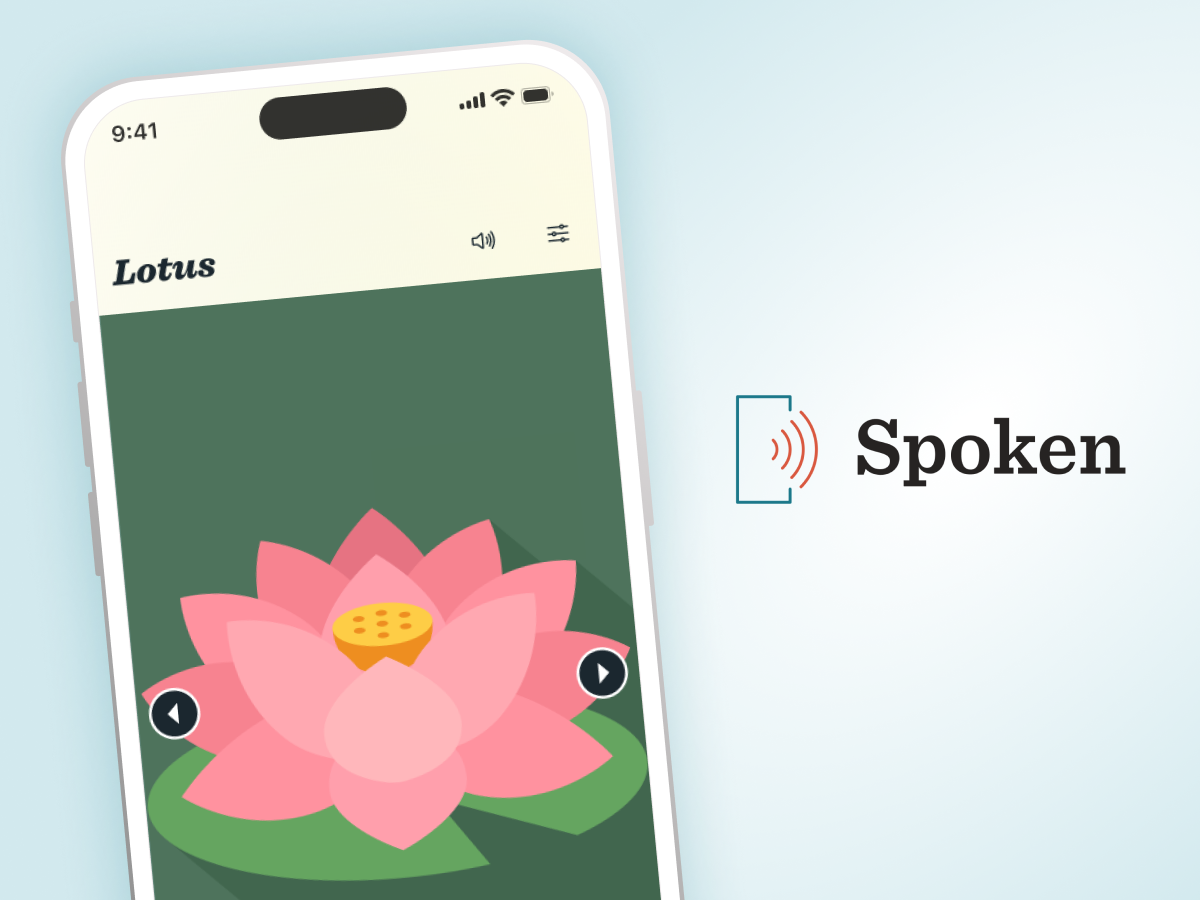August 20, 2025
Spoken Update Brings Greater Representation
Spoken 1.9.1 Adds Diverse Accent Options and More Personalization

Summary: Spoken Inc., a leader in augmentative and alternative communication (AAC) technology, has released version 1.9.1 of its app, adding five voices with new accents, hundreds of high-resolution icons, and new settings options that help users fine-tune how they communicate.
Marietta, OH: Spoken - Tap to Talk AAC, a leading assistive communication app, has just released Version 1.9.1 on Google Play and the Apple App Store. The update introduces Spoken’s first-ever Indian and New Zealand voices, alongside expanded personalization options, a new incognito mode, and hundreds of word icons.
The update adds five new voices — Hawthorn, Jessamine, Lilac, Lotus, and Tawari — to help more users find voices they can identify with. Lotus marks the debut of an Indian accent in Spoken, while Tawari is the first New Zealand voice. Hawthorn, Jessamine, and Lilac bring greater variety to the existing selection of American accents.
“We want everyone who opens Spoken to be able to hear themselves,” said Evan Lauer, Designer at Spoken. “Adding more accent options is a big step toward that.”
Version 1.9.1 also introduces an “incognito mode” setting, allowing users to temporarily turn off the app’s ability to learn from how they talk. This will prevent certain conversations from influencing future word suggestions. The intent behind this feature is to allow users to talk about private subjects — like medical conditions, for example — without needing to worry about the same words popping up in everyday conversation.
This update also expands Spoken’s signature icons, the app’s minimalist take on AAC symbols, by adding hundreds across topics like countries, sports, anatomy, food, clothing, and nature. Most fall into two categories: supporting conversations about current events or daily life. The addition of icons for over 50 countries, alongside icons for words like “pope,” “president,” and even various sports, make it easier to discuss trending events from across the globe. Meanwhile, the new anatomy, clothing, food, and nature icons help users talk about themselves, their surroundings, and everyday experiences.
Finally, Spoken 1.9.1 gives users even more ways to make the app their own with two new settings inspired by user feedback. The new “Keep Saved Phrases Open” option makes it effortless to deliver a series of prepared talking points without breaking your flow. It’s great for presentations, ordering food, talking to a doctor, or any other planned conversations. And for those who want to keep the app as minimal as possible, the new toggle to hide scroll arrows helps reduce the amount of distractions. Together, these refinements round out an update focused on personalization.
Spoken’s team emphasizes that the app will continue to grow, with more features and improvements already in the works. Each update builds on the same goal: making it easier for every user to be heard in a way that feels authentic to them. By expanding choice and control at every level, Spoken is working toward a future where everyone has the tools to communicate naturally, confidently, and on their own terms.
Spoken - Tap to Talk AAC is available to download on the Apple App Store and Google Play for Android devices.
About Spoken, Inc. Spoken is pioneering in the field of augmentative and alternative communication (AAC) technology, with a mission to empower individuals facing speech and communication challenges. Focusing on the surprisingly underserved yet expansive audience of teens and adults with communication difficulties, Spoken’s app leverages advanced AI to predict what its users want to say, facilitating a seamless communication experience unlike anything typical AAC can offer. By continuously innovating and advocating for broader awareness, Spoken aims to unlock new possibilities for users to express themselves freely and confidently. For more information, visit spokenaac.com.
About Spoken
Spoken is an app that helps people with aphasia, nonverbal autism, and other speech and language disorders.
